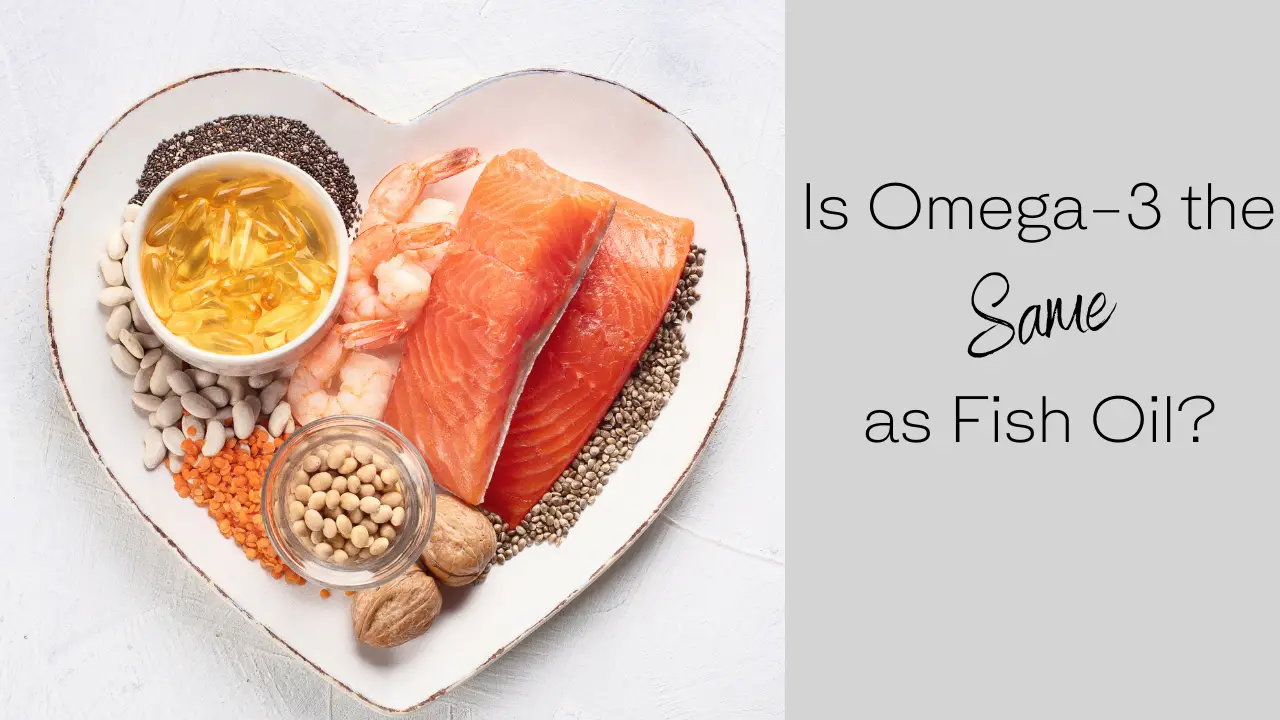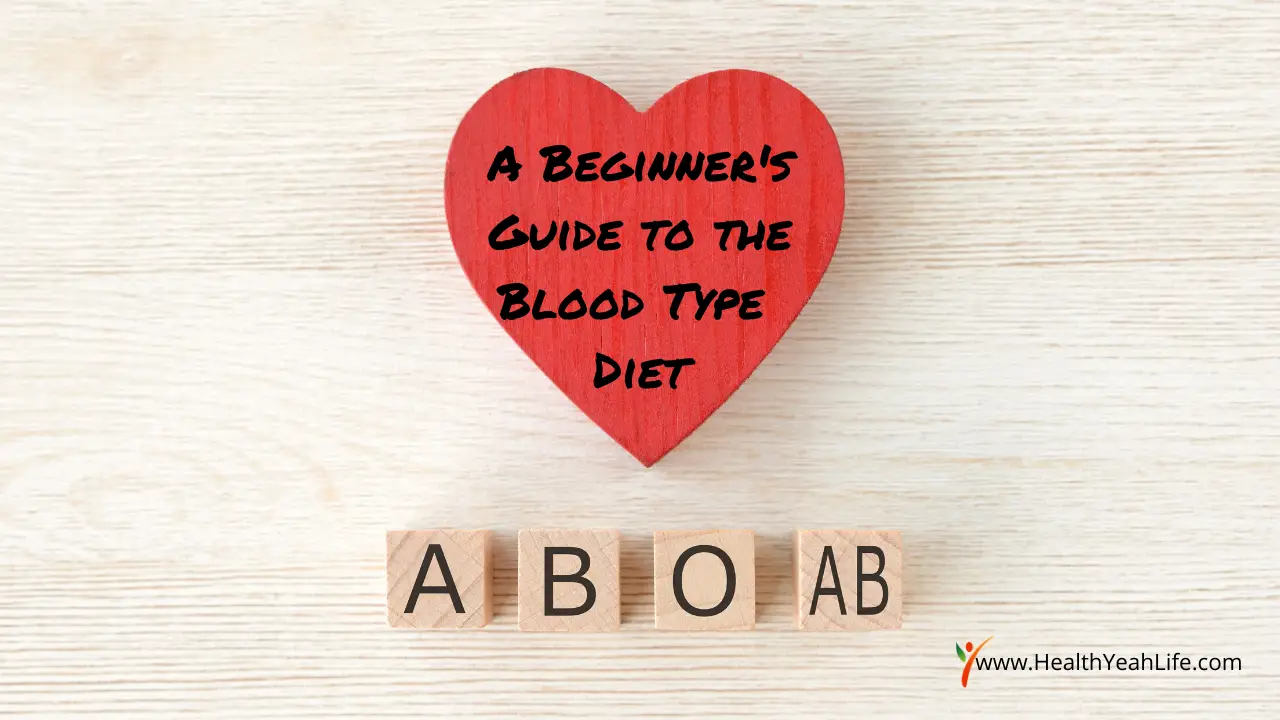With new medical research coming to light, the demand for fish oil has seen a sharp spike upwards. People are convinced that adding fish oil supplements to their diet is the miracle product they need.
After all, with medical experts suggesting regular intake of omega-3, isn't fish oil the same thing? It's a common myth to take one for the other, and we're here to debunk it. So, are they the same or two completely different things? Let's find out.
What is Omega-3?
Your body needs many nutrients to grow, function, and maintain a healthy body. Think of fats, proteins, and carbs; they're common nutrients you might've heard of. The nutrients that the body cannot make themselves are termed essential nutrients.
Because they're fundamental to the body, you need to maintain a regular intake in your diet. Another one of these nutrients includes omega-3 fatty acids.

As the name suggests, omega-3 fatty acids are a family of fats. Omega-3 is further divided into eleven types, of which the following three are the most essential for the human body:
- ALA (alpha-linolenic acid): The component used as energy or stored in the body for later use.
- EPA (eicosapentaenoic acid): The component that produces signaling molecules needed for physiological functions throughout the body and lower inflammation.
- DHA (docosahexaenoic acid): The component that makes up your skin and eye retinas.
What is Fish Oil?
Once again, the name gives it away. Without getting into the technicalities, fish oil comes from fish tissues. But, wait. Not every type of fish has oily tissues that make this product. Species of fish rich in fats are tuna, salmon, mackerel, herring, and anchovies.
So, when you're eating these fish, you're taking in the fish oil. Surprisingly, even these fish don't produce fish oil themselves! It's formed by accumulating acids when they eat small fish or algae. Another source of fish oil that's becoming increasingly popular is fish oil supplements.

The Difference between Omega-3 and Fish Oil
What's the difference between oranges and vitamin C? It's the fruit that contains the vitamin. Keeping that in mind, omega-3 is a nutrient like any other. Meanwhile, fish oil comes from fish; it's a part of fish, in other words. Therefore, fish oil contains the nutrient – omega-3. However, this formula does not mean they're the same.
Everything from the chemical composition to the molecular structure of omega-3 and fish oil is opposite.
Omega-3 is a component of several types of food, mainly seafood and plant-based foods. Fish oil, on the other hand, is a product in itself.
Another difference is that the omega-3 family includes eleven types of fats. Contrastingly, fish oil has only the type EPA and DHA, omitting even the most common ALA type.
Finally, omega-3 is only one type of nutrient, i.e., fats, while fish oil contains other nutrients, such as vitamin A and D. Only 30% of fish oil contains omega-3; the rest are different types of fats.
Where Does Fish Oil and Omega-3 Come From?
When discussing the differences between the two, another point to ponder is their sources. Fish oil, as mentioned previously, comes from the tissue of certain species of oily fish.
Don't get us wrong, the most crucial omega-3 for the human body also comes from fish oil. However, fish oil isn't the only source of omega-3.
Other Sources of Omega-3
If you're allergic to seafood or on a vegan diet, there are other options to maintain your intake of omega-3. Experts advise caution because other sources are not as rich in omega-3 as fish.
But, you can consider these a substitute. Eat a healthy amount in your everyday diet to ensure you're getting the optimum omega-3 amounts.
EPA and DHA Types:
Seaweed and algae: Unfortunately, the only other option for EPA and DHA besides seafood is seaweed and algae. All other types of ‘omega-3 rich foods' contain ALA, but not these two.
Precisely how much EPA and DHA you're getting from seaweed and algae depends on the variety. For instance, nori contains 4-134 mg per 1-oz. Algae is incredibly high in omega-3, considering that's what fish eat, too, to produce fish oil.
ALA Types:
Seafood doesn't contain ALA, but most plant-based ingredients you're already eating do. You might be getting the required amount of ALA already without even knowing it. The following contains this type of omega-3:

- Chia Seeds
- Brussel Sprouts
- Walnuts
- Flaxseed
- Hemp Oil
- Kidney Beans
- Soybean Oil
- Pumpkin Seeds
Benefits of Omega-3 Fish Oil
Improve Heart Health:
The debate on whether or not omega-3 helps reduce the risk of cardiovascular problems can be a heated one. Although, researchers have repeatedly observed that a healthy intake of omega-3 provides various benefits in terms of heart health.
The results are mixed, but there is evidence that omega-3 reduces blood pressure and increases good cholesterol.
Reduce the Onset of Mental Conditions:
A type of omega-3, i.e., EPA, can take the place of antidepressants for those suffering from depression! Studies show that omega-3 intake is observed to reduce the likelihood of depression and anxiety.
Additionally, it is also known to reduce the symptoms of these conditions like lethargy, sadness, and nervousness. Sounds fascinating.
Improve Eyesight:
Remember how we talked about how DHA makes up your eye's retina? A sufficient amount of omega-3 in the diet improves vision and reduces the risk of eyesight problems.

One of the common causes of muscular degeneration, old age, can cause eyesight impairment. Adding omega-3 to your diet may significantly reduce the risk of this happening.
Decrease Inflammation:
While your body has a natural defense mechanism against diseases, chronic inflammation is more serious. The bodies of patients suffering from conditions like diabetes, obesity, cardiovascular problems, etc., are always in defense mode.
Chronic inflammation can cause symptoms like pain, fatigue, fever, and muscle weakness. One way to fight against it is to eat anti-inflammatory foods, and fish oil is known for such properties.
Support Pregnancy and Early Life:
A baby's brain develops during pregnancy and continues in the first few years of infancy. The brain contains a very high level of polyunsaturated fatty acids, and DHA is one of them.

DHA consumption during pregnancy and breastfeeding years accounts for reduced risks of developmental delay, ADHD, autism, and cerebral palsy in the baby.
Improve Bone Health:
The benefits of omega-3, as studies suggest, for now, go two ways. Firstly, it fights against markers that cause bone breakage, leading to bone diseases.
And secondly, like calcium and vitamin D are essential to better bone mineral density, omega-3 could improve it. More research is certainly needed to prove this relation.
Fight Against Mental Decline:
With old age comes the body's deterioration, which includes decreasing or eliminating brain cell production. Alzheimer's disease has no cure, but scientists are trying to study ways to reduce the possibility of incurring it.
One of these findings shows that omega-3 intake can decrease the slow down the death of brain cells. Ultimately, the slower the brain cells die, the slower the mental health decline.
Reduce the Risk of Allergies in Children:
There is still inadequate research on whether or not omega-3 reduces the risk of asthma in children. However, studies have deduced that omega-3 intake by mothers reduces the chances of allergies in the infant.
Relief from Menstrual Pain:
When ibuprofen doesn't do the job during that time of the month, maybe a little fish oil would. Several studies show that women who took omega-3 during menstruation reported milder pain than those who didn't.
Others found it more effective than ibuprofen. And it doesn't have the side effects that an NSAID (Non-steroidal anti-inflammatory drugs) does on your gut health.
Improve Sleep:
Sleep is essential. That's when your body gets its time to recover. Without proper sleep, you're putting your health at risk. Sleep is also tied to a hormone called melatonin.

Lower levels of melatonin are one of the factors that cause sleep deprivation. Omega-3 contains DHL, which increases melatonin production in the body, ensuring a night spent sleeping soundly.
Is Plant-Based Omega 3 as Good as Fish Oil?
Now onto the next debate, whether one omega-3 is good as the other; the thing is, you need all three types of omega-3 mentioned before. There's no apple of my eye here that puts a kind on a pedestal.
Fish oil contains EPA and DHA, the uncommon types, except for seafood, seaweed, algae, and supplements. Flip to the other side, and there are plant-based foods that contain only ALA.
If you've seen medical experts promoting seafood for omega-3, EPA and DHA deficiency exists more profoundly than ALA. In a way, seafood-based omega-3 is more critical, but only because many don't eat it regularly.
You're always working towards a healthy body with a balanced diet, including seafood and plant-based omega-3s.
How Much Should You Take?
Remember that you cannot swap fish oil or supplements for prescribed medicines. Fish oil is not an alternative to prescribed medications. Although, you can add fish oil or its supplements to your diet to maintain omega-3 intake. If you're at risk of health problems due to a lack of omega-3 in your body, a doctor will prescribe medications.
There's no set guideline for how much fish oil you should take daily as far as the recommended dosage. There is, however, a recommended dosage for omega-3.

According to the Reference Daily Intake (RDI), the combination of EPA and DHA per day should be within 250-500 mg. You can increase these amounts, but the FDA suggests not crossing over 3g. The European Food Safety Authority (EFSA) has a different input, saying that daily intake shouldn't be above 5g.
It's best to consult an expert and decide your dose accordingly, and if not, stay within the 250-500mg range.
Final Thoughts:
Now you know fish oil and omega-3 are not the same things. Keeping in mind the benefits of these fats, they're not only good for your body but necessary.
Therefore, ensure a balanced intake of fish oil AND plant-based foods to get ALA, DHA, and EPA. Make a weekly diet plan that includes a balanced portion of every type of ingredient.
Plus, try to get your omega-3s from natural foods instead of supplements unless your condition or diet prevents it.





1 thought on “Is Omega-3 the Same as Fish Oil?”
Comments are closed.